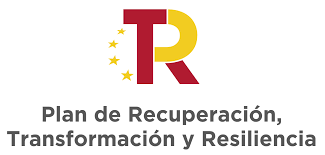The MEDUSA project seeks to develop autonomous driving systems that are safe and accepted by society, placing people at the centre.
It addresses the skills and technologies needed for safe and inclusive autonomous driving by means of sensors and smart communication.
Developing technologies for safe and inclusive autonomous driving
The MEDUSA initiative addresses the skills and technologies needed for safe and inclusive autonomous driving by means of sensors and smart communication. It efficiently merges information from multiple sources, putting people at the centre of the technology. This goal is articulated around four main R&D lines, including:
- Integration and human involvement in the design of autonomous driving systems.
- Smart sensors and safe navigation.
- Design and development of reliable and safe HW/SW platforms.
- Advanced V2X network data integration and management, and reinforcing the paradigm of shared data spaces in smart mobility.
The aim is to achieve a safe and acceptable deployment of autonomous driving, transferring the knowledge and innovation to the automotive sector and emerging technology players in the new mobility ecosystem. The project is coordinated by the Biomechanics Institute of Valencia (IBV); while CTIC and IKERLAN also participate.
Europe's future transport and mobility system must overcome major challenges in the fields of technical research and innovation. Tomorrow's highly-automated vehicles will be based on advanced 'sense-think-act' solutions, thus enabling a safe interaction with all road users. This scenario calls for the integrated development of safe and reliable technologies based on digital instrumentation for connected and autonomous driving.
Deployment of connected vehicle technologies
Collaboration between different sectors encompasses the deployment of technologies for Connected, Cooperative, and Automated Vehicles (CCAM).
TECNALIA's technical objectives are in the field of sustainable and smart mobility:
- Development of digital instrumentation applied to vehicles and infrastructure that is applicable to Connected, Cooperative and Automated Driving, by means of environmental perception, decision-making, and vehicle control technologies.
- Advanced sensor-based vehicle control systems.
- Technologies for V2X – V2I communications, digitisation (AI, big data), mobility optimisation, and decision support; smart sensing, IoT, telecommunications and smart grids, and vehicle connectivity systems to smart infrastructure.
- Advanced interfaces focusing on human factors for driver and passengers.
TECNALIA has been recognised as a CERVERA Centre of Excellence for the development of the MEDUSA project. Engineering technology network applied to the development of smart solutions for people-centred autonomous driving (CER-20231011), funded by the Ministry of Science, Innovation and Universities through the Centre for Technological Development and Innovation E.P.E. (CDTI), under the European Union's Recovery and Resilience Mechanism (RRM).




